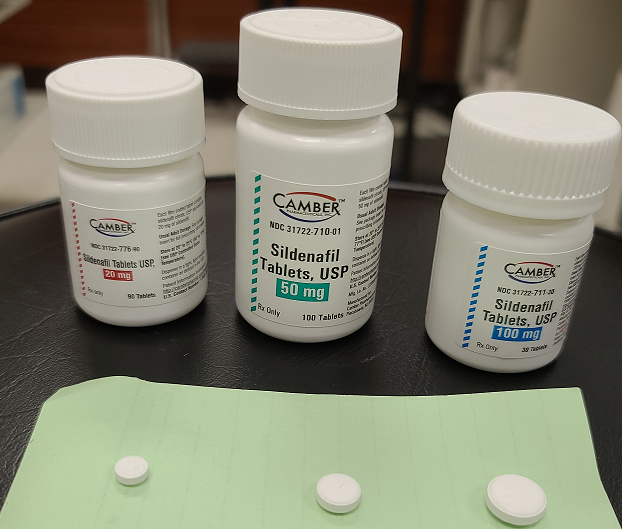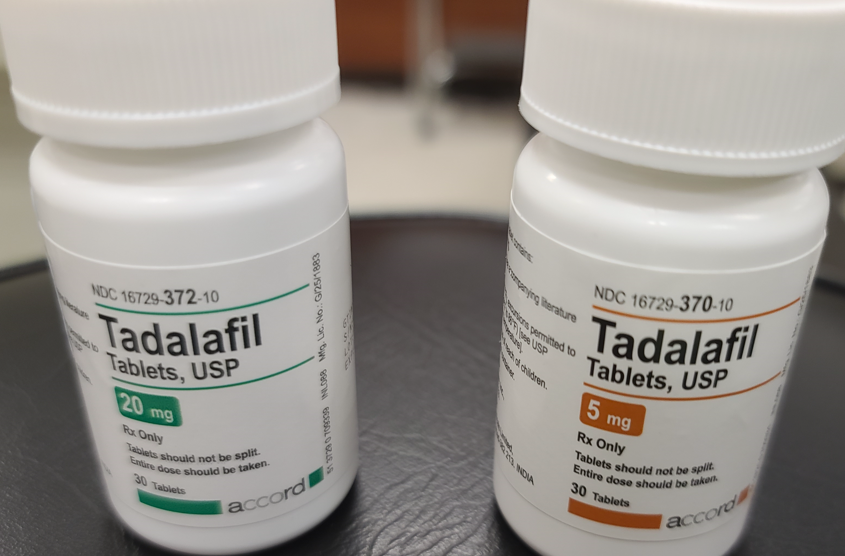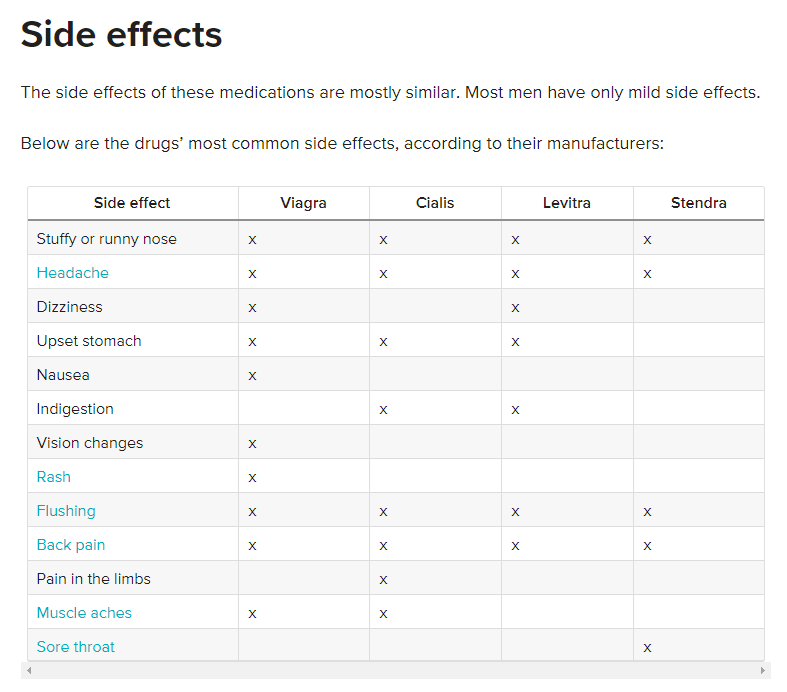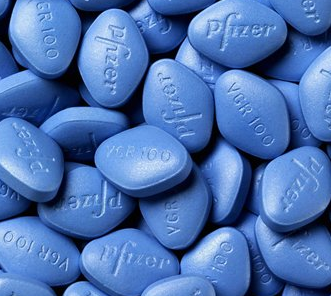VIAGRA (sildenafil citrate), an oral therapy for erectile dysfunction, is the citrate salt of sildenafil, a selective inhibitor of cyclic guanosine monophosphate (cGMP)-specific phosphodiesterase type 5 (PDE5). Sildenafil and tadalafil are both phosphodiesterase type 5 (PDE5) inhibitors and are commonly used to treat erectile dysfunction (ED).
Buy Sildenafil ( Generic Viagra ) Online
| Product Name | Price | Shipping | Total | Order |
| Sildenafil ( Generic Viagra ) – 100mg – 120 Tablets | $209 | free | $209 | Order |
| Sildenafil ( Generic Viagra ) – 100mg – 90 Tablets | $189 | free | $189 | Order |
| Sildenafil ( Generic Viagra ) – 100mg – 30 Tablets | $119 | free | $119 | Order |
| Sildenafil ( Generic Viagra ) – 50mg – 120 Tablets | $202 | free | $202 | Order |
| Sildenafil ( Generic Viagra ) – 50mg – 90 Tablets | $182 | free | $182 | Order |
| Sildenafil ( Generic Viagra ) – 50mg – 30 Tablets | $119 | free | $119 | Order |
| Sildenafil ( Generic Viagra ) – 20mg – 120 Tablets | $179 | free | $179 | Order |
| Sildenafil ( Generic Viagra ) – 20mg – 90 Tablets | $159 | free | $159 | Order |
| Sildenafil ( Generic Viagra ) – 20mg – 30 Tablets | $119 | free | $119 | Order |
| Product Name | Price | Shipping | Total | Order |
| Tadalafil ( Generic Cialis ) – 20mg – 120 Pills | $209 | free | $209 | Order |
| Tadalafil ( Generic Cialis ) – 20mg – 90 Pills | $179 | free | $179 | Order |
| Tadalafil ( Generic Cialis ) – 20mg – 30 Pills | $119 | free | $119 | Order |
| Tadalafil ( Generic Cialis ) – 5mg – 120 Pills | $189 | free | $189 | Order |
| Tadalafil ( Generic Cialis ) – 5mg – 90 Pills | $174 | free | $174 | Order |
| Tadalafil ( Generic Cialis ) – 5mg – 30 Pills | $109 | free | $109 | Order |
Sildenafil, sold under the brand name Viagra among others, is a medication used to treat erectile dysfunction and pulmonary arterial hypertension. It is unclear if it is effective for treating sexual dysfunction in women. It is taken by mouth or by injection into a vein.[8] Onset is typically within 20 minutes and lasts for about 2 hours.
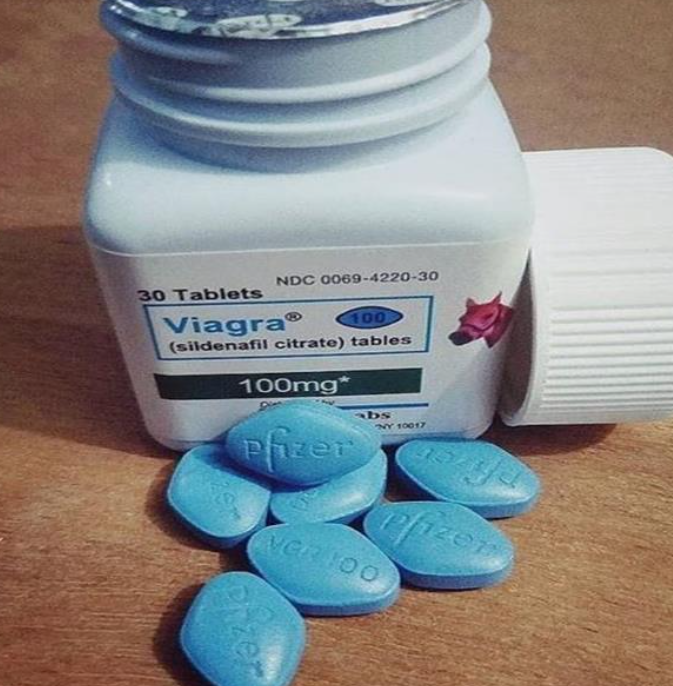
Common side effects include headaches, heartburn, and flushed skin. Caution is advised in those with cardiovascular disease. Rare but serious side effects include a prolonged erection (priapism) that can lead to damage to the penis, vision problems, and hearing loss. Sildenafil should not be taken by people on nitrates such as nitroglycerin (glycerin trinitrate), as this may result in a serious drop in blood pressure. Sildenafil should not be taken within four hours of taking an alpha one antagonist.
Sildenafil acts by blocking phosphodiesterase 5 (PDE5), an enzyme that promotes breakdown of cGMP, which regulates blood flow in the penis. It requires sexual arousal, however, to work. It also results in dilation of the blood vessels in the lungs.
Pfizer originally discovered the medication in 1989 while looking for a treatment for heart-related chest pain. It was approved for medical use in the United States and in the European Union in 1998. In 2017, it was the 217th most commonly prescribed medication in the United States, with more than two million prescriptions.
In 2017, it became available as a generic medication after final patents by Pfizer expired. In the United Kingdom, it is available over the counter. Most of the Active Pharmaceutical Ingredient (API) in Sildenafil, Sildenafil citrate, is produced in Pfizer’s Ringaskiddy complex, County Cork, which is Pfizer’s largest production facility outside of the United States.
Sildenafil citrate is designated chemically as 1-[[3-(6,7-dihydro-1-methyl-7-oxo-3-propyl-1H-pyrazolo[4,3d]pyrimidin-5-yl)-4-ethoxyphenyl]sulfonyl]-4-methylpiperazine citrate and has the following structural formula:
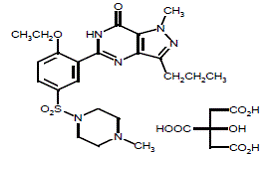
Sildenafil citrate is a white to off-white crystalline powder with a solubility of 3.5 mg/mL in water and a molecular weight of 666.7. Sildenafil is the active ingredient in Viagra, which is nicknamed the little blue pill. Sildenafil, in doses ranging between 25mg and 100mg, has been FDA approved to treat erectile dysfunction.
VIAGRA is formulated as blue, film-coated rounded-diamond-shaped tablets equivalent to 25 mg, 50 mg and 100 mg of sildenafil for oral administration. In addition to the active ingredient, sildenafil citrate, each tablet contains the following inactive ingredients: microcrystalline cellulose, anhydrous dibasic calcium phosphate, croscarmellose sodium, magnesium stearate, hypromellose, titanium dioxide, lactose, triacetin, and FD & C Blue #2 aluminum lake.
Your physician, based on the information you share with them (including your preference and previous use of the medication), will recommend a starting dose. They can also work with you to increase or decrease your dose based on effectiveness and toleration (i.e., titrate your dose). This enables you to achieve the desired effect while taking the least amount of medication.
Sildenafil (Viagra), Cialis, and Levitra are part of a “family” of drugs called PDE-5 inhibitors. You can read more about how they work here.
It is recommended that several attempts are made using the recommended starting dose before adjusting. Several factors can affect the efficacy of sildenafil citrate, including sexual stimulation, and what you eat and drink at the time.
There are several documented reasons why a 100mg dose may be better for the patient:
- Efficacy. Sildenafil and other Phosphodiesterase type 5 (PDE5) drugs work by increasing blood flow to the penis. Though the 100mg effects do not last longer than a lower dosage, the higher concentration does have a more profound effect. However, it is not a good idea to use a higher strength tablet than you really need. Side effects are more likely at higher doses.
- Satisfaction with treatment. Naturally a stronger tablet has a better chance of achieving desired results – achieving and maintaining an erection hard enough for sexual intercourse. This in turn results in not only physical but emotional satisfaction, helping couples in their relationships and improving the man’s self-esteem.
- Reduced anxiety. A number of factors go into the success of an ED medication, and they are not guaranteed to work every time. This uncertainty can lead to a great deal of anxiety for couples who have already had to deal with the frustration of erectile dysfunction – not knowing if they should again get their hopes up for a successful sexual encounter only to be disappointed. The higher dose can therefore have a positive psychological effect, helping men and their partners to feel more confident about having sex.
How Does Viagra Work?
Sildenafil lasts up to 8 hours, which means it is in and out of your system faster than Cialis, which can last up to 36 hours. Some people prefer Sildenafil because if they experience side effects, even if minor, they would rather not experience them for up to 36 hours. On the other hand, some people prefer Cialis mainly because it lasts an extended period of time.
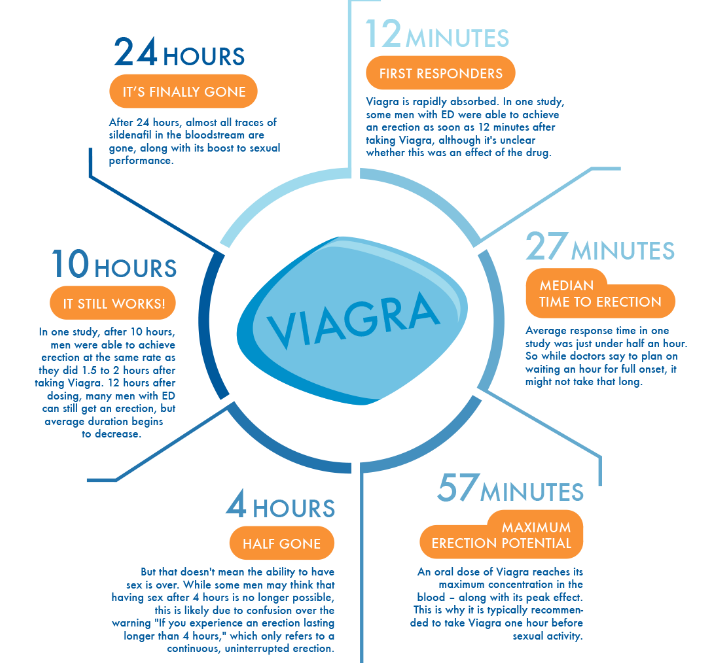
The manufacturers of Viagra recommend taking Viagra one hour before having sex. However, studies have suggested that it could start working even sooner than that. Some men were able to achieve an erection just 12 minutes after taking Viagra, although this wasn’t conclusively proven to be due to Viagra. And while the maximum concentration of sildenafil in the blood isn’t reached until about an hour after taking it (and is potentially delayed by an additional hour if taken with food), it took a median of 27 minutes (with a range of 12–70 minutes) for men taking sildenafil to begin experiencing erections. This was 23 minutes sooner than the median time of 50 minutes experienced by those who took a placebo.
The half-life of Viagra in the body is about four hours, meaning that every four hours after taking it, there’s only half as much of the drug left. However, even 10 to 12 hours after taking Viagra, men could still often achieve erections hard enough for penetration, though of a shorter duration. By 24 hours, all traces of Viagra in the blood are practically gone.
Another reason some people prefer Sildenafil, compared to Levitra, is because it has fewer conflicting medications and functions very similarly in terms of absorption.
It comes down to your personal preference and response to the medication. Please consult with your physician if you have any questions.
How Does Viagra Work to Treat ED?
Viagra, also known by its generic name sildenafil, is a medication used to treat erectile dysfunction (ED). It works by enhancing blood flow to the penis, which is essential for achieving and maintaining an erection. When sexual arousal occurs, your body releases nitric oxide in the genital area, a molecule that initiates the processes responsible for an erection. However, an enzyme known as phosphodiesterase type 5 (PDE5) breaks down certain chemical messengers involved in this mechanism, preventing the desired outcome.
While there can be various reasons for experiencing difficulty in achieving or maintaining an erection, PDE5 inhibitors that inhibit this enzyme, such as Viagra, are commonly used to assist in this process.
Medications like Viagra for men and similar erectile dysfunction drugs like Cialis (tadalafil) and Levitra (vardenafil) function by promoting the relaxation of muscles and arteries within the penis, facilitating increased blood flow to the area. When sexually aroused, and only when arousal is present, this combination of relaxation and improved blood circulation enables the penis to become filled with blood, leading to the ability to attain an erection.
Here’s how Viagra works to treat ED:
- Inhibiting Phosphodiesterase-5 (PDE5): The primary physiological cause of ED is the insufficient flow of blood to the penis, often due to a constricted or narrowed blood vessel. In the normal erectile response, when a man is sexually aroused, the release of nitric oxide (NO) in the penile tissues causes the blood vessels to relax and expand. This dilation allows for increased blood flow into the penis, leading to an erection.
- Nitric Oxide Release: When sexual stimulation occurs, nitric oxide is released in the penile tissue. Nitric oxide acts as a signaling molecule, which triggers the production of cyclic guanosine monophosphate (cGMP).
- cGMP Relaxation Effect: cGMP is responsible for relaxing the smooth muscle cells within the penile blood vessels. This relaxation leads to increased blood flow into the penis, which results in an erection.
- PDE5 Enzyme Inhibition: However, an enzyme called phosphodiesterase-5 (PDE5) is also present in the penile tissue. PDE5 breaks down cGMP, which can prematurely terminate the erection by reducing the amount of cGMP available to maintain the dilation of blood vessels.
- Viagra’s Action: Viagra works by inhibiting PDE5, thus preventing it from breaking down cGMP. As a result, the levels of cGMP in the penile tissue increase and remain elevated, leading to prolonged relaxation of the blood vessels and improved blood flow into the penis.
- Erection: With the increased cGMP and the continued relaxation of the penile blood vessels, men can achieve and maintain an erection when sexually stimulated.
It’s important to note that Viagra does not directly cause an erection on its own. Sexual arousal and stimulation are still required to trigger the release of nitric oxide and the subsequent increase in cGMP levels. Viagra simply enhances the natural physiological response to sexual stimulation, making it easier for men with ED to achieve and sustain an erection.
Viagra is generally safe when taken under the guidance of a healthcare provider, but it may have potential side effects or interact with other medications, so it should only be used as prescribed by a medical professional. It’s essential to consult with a healthcare provider to determine the appropriate dosage and ensure that Viagra is safe and effective for your specific condition.
Why is Viagra prescribed?
Sildenafil (Viagra) is used to treat erectile dysfunction (impotence; inability to get or keep an erection) in men. Sildenafil (Revatio) is used to improve the ability to exercise in adults with pulmonary arterial hypertension (PAH; high blood pressure in the vessels carrying blood to the lungs, causing shortness of breath, dizziness, and tiredness). Children should not usually take sildenafil, but in some cases, a doctor may decide that sildenafil (Revatio) is the best medication to treat a child’s condition. Sildenafil is in a class of medications called phosphodiesterase (PDE) inhibitors. Sildenafil treats erectile dysfunction by increasing blood flow to the penis during sexual stimulation. This increased blood flow can cause an erection. Sildenafil treats PAH by relaxing the blood vessels in the lungs to allow blood to flow easily.
If you are taking sildenafil to treat erectile dysfunction, you should know that it does not cure erectile dysfunction or increase sexual desire. Sildenafil does not prevent pregnancy or the spread of sexually transmitted diseases such as human immunodeficiency virus (HIV).
How should Viagra be used?
Sildenafil comes as a tablet and suspension (liquid; Revatio only) to take by mouth.
If you are taking sildenafil to treat erectile dysfunction, follow your doctor’s directions and the guidelines in this paragraph. Take sildenafil as needed before sexual activity. The best time to take sildenafil is about 1 hour before sexual activity, but you can take the medication any time from 4 hours to 30 minutes before sexual activity. Sildenafil usually should not be taken more than once every 24 hours. If you have certain health conditions or are taking certain medications, your doctor may tell you to take sildenafil less often. You can take sildenafil with or without food. However, if you take sildenafil with a high-fat meal, it will take longer for the medication to start to work.
If you are taking sildenafil to treat PAH, follow your doctor’s directions and the guidelines in this paragraph. You will probably take sildenafil three times a day with or without food. Take sildenafil at around the same times every day, and space your doses about 4 to 6 hours apart.
Follow the directions on your prescription label carefully, and ask your doctor or pharmacist to explain any part you do not understand. Take sildenafil exactly as directed. Do not take more or less of it or take it more often than prescribed by your doctor.
Shake the liquid well for 10 seconds before each use to mix the medication evenly. Use the oral syringe provided with your medication to measure and take your dose. Follow the manufacturer’s directions to use and clean the oral syringe. Do not mix the liquid with other medications or add anything to flavor the medication.
If you are taking sildenafil for erectile dysfunction, your doctor will probably start you on an average dose of sildenafil and increase or decrease your dose depending on your response to the medication. Tell your doctor if sildenafil is not working well or if you are experiencing side effects.
If you are taking sildenafil for PAH, you should know that sildenafil controls PAH but does not cure it. Continue to take sildenafil even if you feel well. Do not stop taking sildenafil without talking to your doctor.
Ask your pharmacist or doctor for a copy of the manufacturer’s information for the patient.
Other uses for this medicine
This medication is sometimes prescribed for other uses; ask your doctor or pharmacist for more information.
What special precautions should I follow?
Before taking sildenafil,
- tell your doctor and pharmacist if you are allergic to sildenafil, any other medications, or any of the ingredients in sildenafil products. Ask your pharmacist for a list of the ingredients.
- do not take sildenafil if you are taking or have recently taken riociguat (Adempas) or nitrates (medications for chest pain) such as isosorbide dinitrate (Isordil), isosorbide mononitrate (Monoket), and nitroglycerin (Minitran, Nitro-Dur, Nitromist, Nitrostat, others). Nitrates come as tablets, sublingual (under the tongue) tablets, sprays, patches, pastes, and ointments. Ask your doctor if you are not sure whether any of your medications contain nitrates.
- do not take street drugs containing nitrates such as amyl nitrate and butyl nitrate (‘poppers’) while taking sildenafil.
- tell your doctor and pharmacist what prescription and nonprescription medications, vitamins, and nutritional supplements you are taking or plan to take. Be sure to mention any of the following: alpha blockers such as alfuzosin (Uroxatral), doxazosin (Cardura), prazosin (Minipress), tamsulosin (Flomax, in Jalyn), and terazosin; amlodipine (Norvasc, in Amturnide, in Tekamlo); certain antifungals such as itraconazole (Onmel, Sporanox) and ketoconazole (Nizoral); anticoagulants (‘blood thinners’) such as warfarin (Coumadin, Jantoven); certain barbiturates such as butalbital (in Butapap, in Fioricet, in Fiorinal, others) and secobarbital (Seconal); beta blockers such as atenolol (Tenormin, in Tenoretic), labetalol (Trandate), metoprolol (Lopressor, Toprol XL, in Dutoprol), nadolol (Corgard, in Corzide), and propranolol (Hemangeol, Inderal LA, InnoPran); bosentan (Tracleer); cimetidine ; efavirenz (Sustiva, in Atripla); erythromycin (E.E.S., E-Mycin, Erythrocin); HIV protease inhibitors including amprenavir (Agenerase; no longer available in the U.S.), atazanavir (Reyataz, in Evotaz), darunavir (Prezista, in Prezcobix), fosamprenavir (Lexiva), indinavir (Crixivan), lopinavir (in Kaletra), nelfinavir (Viracept), ritonavir (Norvir, in Kaletra), saquinavir (Invirase), and tipranavir (Aptivus); nevirapine (Viramune); other medications or devices to treat erectile dysfunction; medications for high blood pressure; certain medications for seizures including carbamazepine (Carbatrol, Epitol, Tegretol, others), phenobarbital, and phenytoin (Dilantin, Phenytek); rifabutin (Mycobutin); and rifampin (Rifadin, Rimactane, in Rifamate, in Rifater). Your doctor may need to change the doses of your medications or monitor you carefully for side effects. Many other medications may also interact with sildenafil, so be sure to tell your doctor about all the medications you are taking, even those that do not appear on this list.
- tell your doctor what herbal products you are taking or plan to take, especially St. John’s wort.
- tell your doctor if you smoke, if you have ever had an erection that lasted for several hours, and if you have recently lost a large amount of body fluids (dehydration). This can happen if you are sick with fever, diarrhea, or vomiting; sweat a lot; or do not drink enough liquids. Also tell your doctor if you have or have ever had pulmonary veno-occlusive disease (PVOD; blockage of veins in the lungs); a stomach ulcer; heart, kidney, or liver disease; a heart attack; an irregular heartbeat; a stroke; chest pain; high or low blood pressure; high cholesterol; a bleeding disorder; blood circulation problems;blood cell problems such as sickle cell anemia (a disease of the red blood cells), multiple myeloma (cancer of the plasma cells), or leukemia (cancer of the white blood cells); conditions affecting the shape of the penis (e.g., angulation, cavernosal fibrosis, or Peyronie’s disease); or diabetes. Also tell your doctor if you or any of your family members have or have ever had an eye disease such as retinitis pigmentosa (an inherited eye condition that causes loss of vision) or if you have ever had sudden severe vision loss, especially if you were told that the vision loss was caused by a blockage of blood flow to the nerves that help you see.
- if you are a woman and you are taking sildenafil to treat PAH, tell your doctor if you are pregnant, plan to become pregnant, or are breastfeeding. If you become pregnant while taking sildenafil, call your doctor.
- if you are having surgery, including dental surgery, tell your doctor or dentist that you are taking sildenafil.
- if you are taking sildenafil to treat erectile dysfunction, tell your doctor if you have ever been advised by a healthcare professional to avoid sexual activity for medical reasons or if you have ever experienced chest pain during sexual activity. Sexual activity may be a strain on your heart, especially if you have heart disease. If you experience chest pain, dizziness, or nausea during sexual activity, call your doctor immediately and avoid sexual activity until your doctor tells you otherwise.
- tell all your healthcare providers that you are taking sildenafil. If you ever need emergency medical treatment for a heart problem, the healthcare providers who treat you will need to know when you last took sildenafil.
What special dietary instructions should I follow?
Talk to your doctor about eating grapefruit and drinking grapefruit juice while taking this medicine.
What should I do if I forget a dose?
If you are taking sildenafil for erectile dysfunction, you are unlikely to miss a dose since this medication is taken as needed, not on a regular dosing schedule.
If you are taking sildenafil for PAH, take the missed dose as soon as you remember it. However, if it is almost time for the next dose, skip the missed dose and continue your regular dosing schedule. Do not take a double dose to make up for a missed one.
What side effects can Viagra cause?
Sildenafil may cause side effects. Tell your doctor if any of these symptoms are severe or do not go away:
-
-
- headache
- heartburn
- diarrhea
- flushing (feeling of warmth)
- nosebleeds
- difficulty falling asleep or staying asleep
- numbness, burning, or tingling in the arms, hands, feet, or legs
- muscle aches
- changes in color vision (seeing a blue tinge on objects or having difficulty telling the difference between blue and green)
- sensitivity to light
-
Some side effects can be serious. If you experience any of the following symptoms, call your doctor immediately:
- sudden severe loss of vision (see below for more information)
- blurred vision
- sudden decrease or loss of hearing
- ringing in ears
- dizziness or lightheadedness
- fainting
- chest pain
- worsening shortness of breath
- erection that is painful or lasts longer than 4 hours
- itching or burning during urination
- rash
Some patients experienced a sudden loss of some or all of their vision after they took sildenafil or other medications that are similar to sildenafil. The vision loss was permanent in some cases. It is not known if the vision loss was caused by the medication. If you experience a sudden loss of vision while you are taking sildenafil, call your doctor immediately. Do not take any more doses of sildenafil or similar medications such as tadalafil (Cialis) or vardenafil (Levitra) until you talk to your doctor.
There have been reports of heart attack, stroke, irregular heartbeat, bleeding in the brain or lungs, high blood pressure, and sudden death in men who took sildenafil for erectile dysfunction. Most, but not all, of these people had heart problems before taking sildenafil. It is not known whether these events were caused by sildenafil, sexual activity, heart disease, or a combination of these and other causes.
Talk to your doctor about the risks of taking sildenafil.
Some patients experienced a sudden decrease or loss of hearing after they took sildenafil or other medications that are similar to sildenafil. The hearing loss usually involved only one ear and did not always improve when the medication was stopped. It is not known if the hearing loss was caused by the medication. If you experience a sudden loss of hearing, sometimes with ringing in the ears or dizziness, while you are taking sildenafil, call your doctor immediately. If you are taking sildenafil (Viagra) for erectile dysfunction, do not take any more doses of sildenafil (Viagra) or similar medications such as tadalafil (Cialis) or vardenafil (Levitra) until you talk to your doctor. If you are taking sildenafil (Revatio) for PAH, do not stop taking your medication until you talk to your doctor.
Sildenafil may cause other side effects. Call your doctor if you have any unusual problems while you are taking this medication.
If you experience a serious side effect, you or your doctor may send a report to the Food and Drug Administration’s (FDA) MedWatch Adverse Event Reporting program online (http://www.fda.gov/Safety/MedWatch) or by phone (1-800-332-1088).
Information on Viagra dosages
The appropriate dosage of Viagra may vary between people. Your doctor will be able to determine the right dosage for you.
The number of doses taken daily depends on why Viagra is being used. Viagra is taken orally.
For use in erectile dysfunction:
-
- Adults ages up to 64 years old typically take 50 milligrams (mg) 1 hour before sexual intercourse, no more than once a day.
- For adults ages 65 and older using Viagra for erectile dysfunction, or for those with cirrhosis or severe renal impairment, the average dose is 25 mg as a single dose, taken 1 hour before sexual intercourse, but no more than once a day.
Viagra may also be taken between 30 minutes to 4 hours prior to sexual intercourse.
Your doctor may adjust your dosage to meet your needs.
Viagra may also be used for pulmonary arterial hypertension. When used for this purpose, the average dose is 5 to 20 mg of Viagra taken 3 times a day. The doses of Viagra should be taken between 4 to 6 hours apart when used for pulmonary arterial hypertension.
| Age | Dosage | When to take |
| Adults ages up to 64 years old | 50 mg, no more than once a day | 1 hour prior to sexual intercourse (alternatively, may also be taken between 30 minutes and 4 hours prior to sexual intercourse) |
| Adults ages 65 and older, or with cirrhosis or severe renal impairment | 25 mg, no more than once a day | 1 hour prior to sexual intercourse (alternatively, may also be taken between 30 minutes and 4 hours prior to sexual intercourse) |
What should I know about storage and disposal of this medication?
Keep this medication in the container it came in, tightly closed, and out of reach of children. Store the tablets at room temperature and away from excess heat and moisture (not in the bathroom). Store the suspension at room temperature or in a refrigerator, but do not freeze it. Dispose of any unused suspension after 60 days.
It is important to keep all medication out of sight and reach of children as many containers (such as weekly pill minders and those for eye drops, creams, patches, and inhalers) are not child-resistant and young children can open them easily. To protect young children from poisoning, always lock safety caps and immediately place the medication in a safe location – one that is up and away and out of their sight and reach.
Unneeded medications should be disposed of in special ways to ensure that pets, children, and other people cannot consume them. However, you should not flush this medication down the toilet. Instead, the best way to dispose of your medication is through a medicine take-back program. Talk to your pharmacist or contact your local garbage/recycling department to learn about take-back programs in your community.
In case of emergency/overdose
In case of overdose, call the poison control helpline at 1-800-222-1222. Information is also available online at https://www.poisonhelp.org/help. If the victim has collapsed, had a seizure, has trouble breathing, or can’t be awakened, immediately call emergency services at 911.
What other information should I know?
Keep all appointments with your doctor.
Do not let anyone else take your medication. Ask your pharmacist any questions you have about refilling your prescription.
It is important for you to keep a written list of all of the prescription and nonprescription (over-the-counter) medicines you are taking, as well as any products such as vitamins, minerals, or other dietary supplements. You should bring this list with you each time you visit a doctor or if you are admitted to a hospital. It is also important information to carry with you in case of emergencies.
Brand names
-
-
- Revatio®
- Viagra®
-
Cialis vs. Viagra
Unlike Viagra and the other PDE5 inhibitors, Cialis is also approved to treat enlarged prostate.
Both Viagra and Cialis can be taken 30 minutes before sexual activity. However, Cialis lasts much longer and is noteworthy for the amount of time it remains in your body. You may feel the effects of the drug up to 36 hours after you take it.
The fact that it comes in a low-dose (2.5 mg) version also means that Cialis can be taken every day. A daily dose will ensure that the drug’s always in your system.
If you take Cialis, there’s a chance of limb pain. This side effect isn’t associated with any other oral ED drugs.
Erectile dysfunction (impotence) is the inability to get and keep an erection firm enough for sex.
Viagra Drug interactions
Each drug comes with the risk of drug interactions. Since PDE5 inhibitors work on the body in similar ways, Viagra, Cialis, Levitra, and Stendra lead to similar interactions.
All four of these drugs interact with:
-
-
- nitrates, such as isosorbide mononitrate (Monoket) and nitroglycerin (Nitrostat)
- certain blood pressure drugs, such as calcium channel blockers
- alpha blockers, which can treat high blood pressure or an enlarged prostate
- certain pulmonary hypertension drugs, such as riociguat (Adempas)
- protease inhibitors, a class of HIV drugs
- antifungal drugs, such as ketoconazole and itraconazole (Onmel, Sporanox)
- antibacterial drugs, such as clarithromycin (Biaxin)
-
Drinking excessive amounts of alcohol while on any PDE5 inhibitor should be avoided, and you shouldn’t combine different ED drugs.
Cialis may also be less effective if used alongside antiseizure medications such as carbamazepine (Tegretol) and phenobarbital.
For specifics on which medications are safe for you to use, it’s best to consult your doctor or pharmacist.
Do not take VIAGRA if you:
-
- take any medicines called nitrates, often prescribed for chest pain, or guanylate cyclase stimulators like Adempas (riociguat) for pulmonary hypertension. Your blood pressure could drop to an unsafe level
- are allergic to sildenafil, as contained in VIAGRA and REVATIO, or any of the ingredients in VIAGRA
Discuss your health with your doctor to ensure that you are healthy enough for sex. If you experience chest pain, dizziness, or nausea during sex, seek immediate medical help.
VIAGRA can cause serious side effects. Rarely reported side effects include:
-
- an erection that will not go away (priapism). If you have an erection that lasts more than 4 hours, get medical help right away. If it is not treated right away, priapism can permanently damage your penis
- sudden vision loss in one or both eyes. Sudden vision loss in one or both eyes can be a sign of a serious eye problem called non-arteritic anterior ischemic optic neuropathy (NAION). Stop taking VIAGRA and call your healthcare provider right away if you have any sudden vision loss
- sudden hearing decrease or hearing loss. Some people may also have ringing in their ears (tinnitus) or dizziness. If you have these symptoms, stop taking VIAGRA and contact a doctor right away
Before you take VIAGRA, tell your healthcare provider if you:
-
- have or have had heart problems such as a heart attack, irregular heartbeat, angina, chest pain, narrowing of the aortic valve, or heart failure
- have had heart surgery within the last 6 months
- have pulmonary hypertension
- have had a stroke
- have low blood pressure, or high blood pressure that is not controlled
- have a deformed penis shape
- have had an erection that lasted for more than 4 hours
- have problems with your blood cells such as sickle cell anemia, multiple myeloma, or leukemia
- have retinitis pigmentosa, a rare genetic (runs in families) eye disease
- have ever had severe vision loss, including an eye problem called NAION
- have bleeding problems
- have or have had stomach ulcers
- have liver problems
- have kidney problems or are having kidney dialysis
- have any other medical conditions
Tell your healthcare provider about all the medicines you take, including prescription and over-the-counter medicines, vitamins, and herbal supplements.
VIAGRA may affect the way other medicines work, and other medicines may affect the way VIAGRA works, causing side effects. Especially tell your healthcare provider if you take any of the following:
-
- medicines called nitrates
- medicines called guanylate cyclase stimulators such as Adempas (riociguat)
- medicines called alpha-blockers, such as Hytrin (terazosin HCl), Flomax (tamsulosin HCl), Cardura (doxazosin mesylate), Minipress (prazosin HCl), Uroxatral (alfuzosin HCl), Jalyn (dutasteride and tamsulosin HCl), or Rapaflo (silodosin). Alpha-blockers are sometimes prescribed for prostate problems or high blood pressure. In some patients, the use of VIAGRA with alpha-blockers can lead to a drop in blood pressure or to fainting
- medicines called HIV protease inhibitors, such as ritonavir (Norvir), indinavir sulfate (Crixivan), saquinavir (Fortovase or Invirase), or atazanavir sulfate (Reyataz)
- some types of oral antifungal medicines, such as ketoconazole (Nizoral) and itraconazole (Sporanox)
- some types of antibiotics, such as clarithromycin (Biaxin), telithromycin (Ketek), or erythromycin
- other medicines that treat high blood pressure
- other medicines or treatments for ED
- VIAGRA contains sildenafil, which is the same medicine found in another drug called REVATIO. REVATIO is used to treat a rare disease called pulmonary arterial hypertension (PAH). VIAGRA should not be used with REVATIO or with other PAH treatments containing sildenafil or any other PDE5 inhibitors (such as Adcirca [tadalafil])
VIAGRA does not protect against sexually transmitted diseases, including HIV.
The most common side effects of VIAGRA: headache; flushing; upset stomach; abnormal vision, such as changes in color vision (such as having a blue color tinge) and blurred vision; stuffy or runny nose; back pain; muscle pain; nausea; dizziness; rash.
How do Sildenafil and Tadalafil Work?
Sildenafil and tadalafil are both phosphodiesterase type 5 (PDE5) inhibitors and are commonly used to treat erectile dysfunction (ED). They work in a similar way to help men with ED achieve and maintain an erection, but there are some differences between the two. Here’s how sildenafil and tadalafil work:
Sildenafil (Viagra):
- Mechanism of Action: Sildenafil inhibits the enzyme PDE5, which is primarily found in the corpus cavernosum of the penis. PDE5 is responsible for breaking down cyclic guanosine monophosphate (cGMP), a molecule that promotes vasodilation (relaxation of blood vessels).
- Erection Process: When a man is sexually aroused, nitric oxide (NO) is released in the penile tissue. NO triggers an increase in cGMP levels, leading to the relaxation of smooth muscle cells in the penile blood vessels. This relaxation allows for increased blood flow to the penis, ultimately leading to an erection.
- Prolongation of Erection: By inhibiting PDE5, sildenafil prevents the breakdown of cGMP, allowing cGMP levels to remain elevated. This promotes and prolongs the relaxation of smooth muscle cells and enhanced blood flow, which helps in achieving and sustaining an erection when sexually aroused.
- Duration: Sildenafil typically has an onset of action within 30 to 60 minutes, with the effects lasting for about four to five hours. It should be taken 30 minutes to four hours before sexual activity.
Tadalafil (Cialis):
- Mechanism of Action: Like sildenafil, tadalafil is a PDE5 inhibitor. It works in a similar way by blocking the action of PDE5, which leads to increased levels of cGMP.
- Erection Process: When sexually aroused, nitric oxide is released, and cGMP levels increase, causing the relaxation of penile smooth muscle cells and improved blood flow to the penis.
- Prolongation of Erection: Tadalafil’s key advantage is its longer duration of action. It can remain effective for up to 36 hours after administration. This prolonged duration makes it popularly known as the “weekend pill.”
- Duration: Tadalafil has a longer onset of action compared to sildenafil, taking effect in as little as 30 minutes but often taking up to two hours. Due to its extended duration of action, it can be taken on a daily basis at a lower dose for continuous ED treatment or as needed.
In summary, both sildenafil and tadalafil are PDE5 inhibitors that enhance the body’s natural response to sexual arousal. They prevent the breakdown of cGMP, leading to the relaxation of penile smooth muscle cells and increased blood flow to the penis. Sildenafil has a shorter duration of action, typically lasting for about four to five hours, while tadalafil has a much longer duration, up to 36 hours, making it a more convenient option for some individuals. The choice between the two medications often depends on individual preferences, lifestyle, and the guidance of a healthcare provider.
